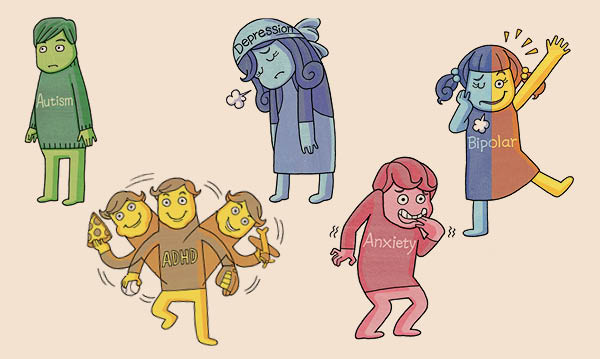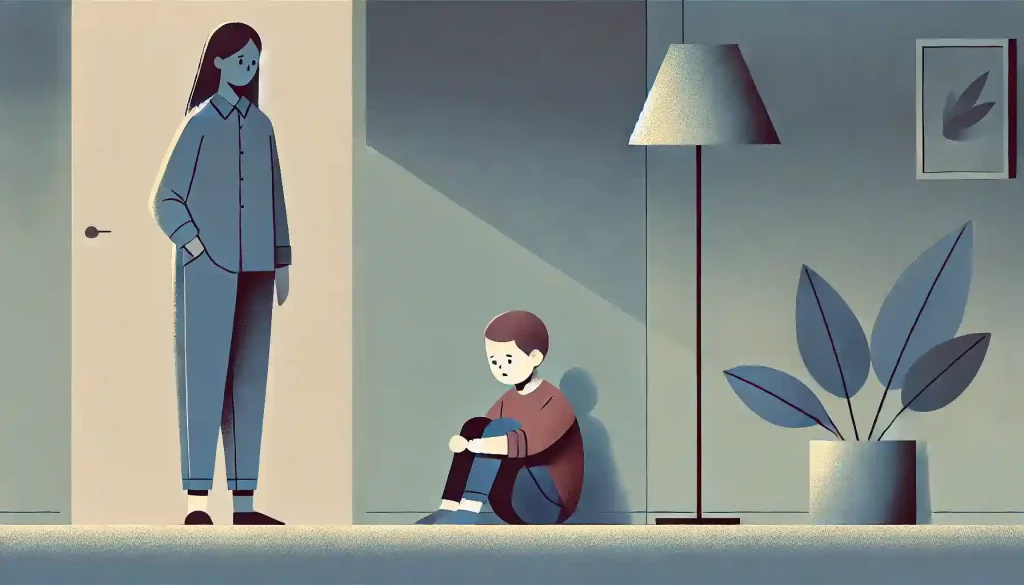
Children with mental health problems have difficulty controlling their emotions, behaviours, and
thinking, which could present as destructive, defiant and aggressive behaviours. The mental health
disorders seen in childhood could range from attention and destructive behaviours, developmental
disorders, mood disorders, and anxiety disorders to trauma-related conditions. They include;
- Attachment disorders
Attachment theory forms a basis for understanding the children-caregiver relationship
Children develop a sense of security in their caregivers because they are associated with
meeting their needs, making them feel connected. When these relationships are abused, or the
child feels neglected by their caregiver, there is a high chance that such a child may develop an
attachment disorder because the trust has been broken. This could result in a reactive
attachment disorder.

Reactive attachment disorder occurs when a child does not form healthy emotional bonds with
the caregiver. This could happen in adopted children, children in foster homes, or a child abused
or neglected by the caregiver. This could be seen in the child as;
- Avoidance of the caregiver
- Hesitancy in social interaction
- Difficulty showing affection
- Seeking attention from strangers
- Resistant to comforting
- Inappropriate familiarity with strangers
- Hypervigilance: Being easily startled
- Anxiety disorders
Anxiety disorders are the most common psychiatric disorders in childhood and are associated with
poor quality of life, depression, and significant societal costs. Anxiety may present as fear or worry
but can also make children irritable and angry. Anxiety disorders in children include:
Separation Anxiety disorders: Separation anxiety is a normal phase of early childhood, which begins
around 8 to 12 months in which children may show fear of strangers or experience anxiety regarding
separation from home and from people to whom the individual has a strong emotional attachment.
However, separation anxiety disorder is more extreme and continues beyond the expected
developmental phase.
Generalized Anxiety disorders: Experience of excessive and uncontrollable worry about various
things by children.
Panic disorders
Social anxiety disorders

- Attention Deficit Hyperactivity Disorder(ADHD)
In Nigeria, the prevalence is about 7.6% in childhood. ADHD is a syndrome of inattention,
distractibility, restless overactivity and impulsiveness. This condition leads children to have difficulty
regulating their focus and energy levels. These features are often noticed before the age of 6, and
can be observed at home and in school.
Signs of ADHD in children include:
- Reckless behaviours
- Inattention
- Impulsiveness
- Aggression towards self and others
- Tantrum and emotional outbursts more than their age mates
- Insomnia
- Loss of interest in activities
- Autistic spectrum disorder
This is a neurodevelopmental problem that occurs in early childhood usually before the age of 3.
Affected children have difficulty interacting with other people. They exhibit repetitive behaviours or
interests. They may experience educational challenges. - Depression
An example of a mood disorder. This is a persistent feeling of sadness, low mood and loss of interest
in activities a child enjoys on a norm.
